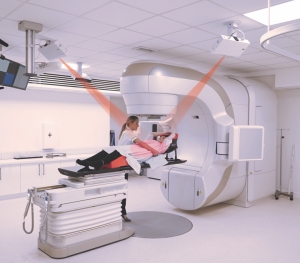Medical practice appraisals are essential components of the professional journey for healthcare practitioners in the United Kingdom. These structured annual assessments ensure that doctors remain competent, reflective, and aligned with the expectations outlined in Good Medical Practice.
Many healthcare professionals encounter hurdles throughout the appraisal cycle—from gathering evidence and meeting deadlines to facing emotional pressures. For appraisers and appraisees alike, understanding these challenges and implementing effective strategies can transform appraisals from stressful tasks into opportunities for meaningful development.
This article explores the most common difficulties encountered during medical practice appraisal and presents practical solutions to help overcome them.
Understanding the Purpose of Medical Practice Appraisals
Before exploring the challenges, it's important to reflect on the intent behind the process. A medical practice appraisal is not an evaluation of performance in the traditional sense, but rather a chance for doctors to demonstrate reflection, show their commitment to continuing professional development (CPD), and plan their future growth. It is designed to be a formative experience, fostering conversations about goals, achievements, and areas for improvement.
A well-conducted appraisal promotes:
- Professional accountability
- Enhanced clinical knowledge and skills
- Personal growth and wellbeing
- Stronger doctor-patient relationships
Yet, for many, the path to a successful appraisal is strewn with obstacles.
Challenge 1: Difficulty in Organising and Presenting Evidence
One of the most commonly cited challenges is gathering the necessary documentation to support appraisal discussions. Doctors are expected to present a comprehensive portfolio, including CPD records, quality improvement activities, significant events, and both colleague and patient feedback.
Why This Happens:
- Clinical responsibilities often take priority over administrative tasks.
- There is a lack of clarity on what constitutes valid or sufficient evidence.
- Time constraints mean evidence collection is left to the last minute.
Solution:
To address this, doctors should adopt a proactive approach to portfolio management. Scheduling regular intervals—perhaps monthly or quarterly—to update CPD logs, reflect on clinical incidents, and gather feedback can significantly reduce last-minute pressure. Digital platforms specifically designed for medical revalidation can also simplify the process, offering templates and reminders that help clinicians stay organised throughout the year.
Keeping evidence concise and relevant is key. Rather than quantity, focus on quality, ensuring each entry demonstrates learning, insight, or improvement in practice.
Challenge 2: Navigating Patient and Colleague Feedback
Feedback is an essential part of the medical practice appraisal, providing insights into communication, professionalism, and patient care. However, collecting feedback—especially in a busy or transient clinical setting—can be complicated.
Why This Happens:
- Patients may be reluctant or unsure how to provide feedback.
- Colleagues are often too busy to respond in a timely manner.
- Doctors may find it awkward to request feedback personally.
Solution:
Using standardised feedback forms endorsed by the General Medical Council (GMC) ensures consistency and validity. These can be distributed via administrative staff or through electronic surveys, which tend to have higher response rates. Doctors should consider integrating feedback requests into routine practice—such as following a discharge or consultation—when the experience is still fresh in the patient's mind.
To reduce discomfort, the process should remain anonymous and confidential. Explaining the purpose of the feedback—to support professional development—also encourages participation and honesty.
Challenge 3: Uncertainty About Reflective Practice
Reflective practice is at the heart of a successful medical practice appraisal, yet many doctors find it difficult to articulate their reflections meaningfully. Rather than simple summaries of events, reflections are intended to showcase thought processes, learning outcomes, and actions for improvement.
Why This Happens:
- Reflective writing is not commonly taught in clinical training.
- There is a misconception that reflections must be overly detailed or critical.
- Fear of judgement may inhibit honest reflection.
Solution:
Doctors can benefit from familiarising themselves with structured reflection models, such as Gibbs' Reflective Cycle or the SEA (Significant Event Analysis) framework. These provide a step-by-step method to articulate experiences, thoughts, feelings, and responses.
Keeping reflections focused and specific is helpful. A short paragraph outlining what happened, what was learned, and how it will influence future behaviour can suffice. It's not about criticising oneself, but rather demonstrating self-awareness and a desire to improve.
Appraisers, in turn, should provide a safe space for open dialogue, emphasising that reflective practice is developmental, not punitive.
Challenge 4: Emotional Stress and Apprehension
For many doctors, appraisals evoke a sense of anxiety. Whether it's fear of scrutiny, worry about being judged, or self-doubt about achievements, the process can feel emotionally charged.
Why This Happens:
- Misunderstanding the purpose of appraisal as a pass/fail test.
- Previous negative experiences with appraisals.
- High personal expectations or imposter syndrome.
Solution:
Clear communication from the appraiser prior to the meeting can alleviate much of this stress. Setting the tone that the appraisal is a supportive and developmental conversation, not a performance evaluation, helps shift the mindset.
Doctors are encouraged to prepare honestly and thoroughly, focusing on their efforts, growth, and challenges. Where necessary, mental health support or peer discussions can help manage the psychological impact.
Organisational culture plays a role as well—promoting a culture of learning and compassion rather than criticism reduces stigma around discussing mistakes or vulnerabilities.
Challenge 5: Lack of Time and Competing Demands
Time pressure is a universal issue in healthcare. With demanding clinical roles, administrative responsibilities, and personal obligations, many doctors struggle to prioritise appraisal preparation.
Why This Happens:
- Busy schedules make it difficult to dedicate time for portfolio management.
- Appraisal preparation is often seen as an additional burden rather than an integral part of practice.
- Last-minute preparation increases stress and decreases quality.
Solution:
Time management strategies can make a significant difference. Setting aside regular, protected time for reflection, evidence collation, and feedback requests ensures consistent progress. Treating appraisal preparation as an ongoing process, rather than a once-a-year scramble, leads to better outcomes and a more positive experience.
Healthcare organisations also have a role to play in enabling this. Providing structured support, clear timelines, and training can empower doctors to approach appraisal with confidence.
Challenge 6: Appraiser and Appraisee Mismatch
A successful appraisal depends heavily on the relationship between the appraiser and appraisee. A lack of rapport, differing expectations, or ineffective communication can hinder the value of the meeting.
Why This Happens:
- Mismatched professional backgrounds or work styles.
- Insufficient preparation by either party.
- Misunderstanding of the appraisal's objectives.
Solution:
Where possible, doctors should be allowed to express preferences for their appraiser or request a change if the relationship proves unproductive. Effective appraisers are those who can listen, ask insightful questions, and provide constructive feedback without judgement.
Training and support for appraisers are essential. When both parties are aligned in their understanding and goals, the appraisal becomes a powerful platform for professional dialogue.
Challenge 7: Difficulty in Setting Future Objectives
Appraisals should conclude with a Personal Development Plan (PDP) that sets out goals for the coming year. Yet, some doctors find this stage vague or struggle to identify realistic and meaningful objectives.
Why This Happens:
- Lack of clarity about what constitutes an effective PDP goal.
- Uncertainty about available training or development opportunities.
- Goals that are either too broad or too narrow.
Solution:
A good PDP is SMART: Specific, Measurable, Achievable, Relevant, and Time-bound. For example, rather than “improve communication skills,” a more effective objective would be “attend a one-day communication workshop by October and apply learning to patient consultations.”
Doctors should consider their career aspirations, areas for growth, and feedback received when developing objectives. Collaboration with the appraiser during this phase ensures the goals are both appropriate and achievable.
Final Thoughts: Turning Appraisals into Growth Opportunities
Despite the numerous challenges associated with medical practice appraisal, the process remains a vital mechanism for maintaining high standards, fostering personal development, and improving patient care. By recognising common difficulties and taking a proactive, reflective, and supported approach, doctors can shift their perspective—from appraisal as a compliance task to appraisal as a career-enhancing opportunity.
Here's a quick summary of practical strategies:
- Manage evidence regularly, not reactively
- Collect feedback using structured, accessible tools
- Embrace reflective practice with the help of simple models
- Address emotional concerns with honesty and peer support
- Prioritise time through scheduling and organisational planning
- Ensure appraiser relationships are productive and aligned
- Set SMART goals in the Personal Development Plan
By embedding these practices into routine professional life, doctors can ensure their medical practice appraisal becomes not only a requirement but a rewarding part of their clinical journey.





